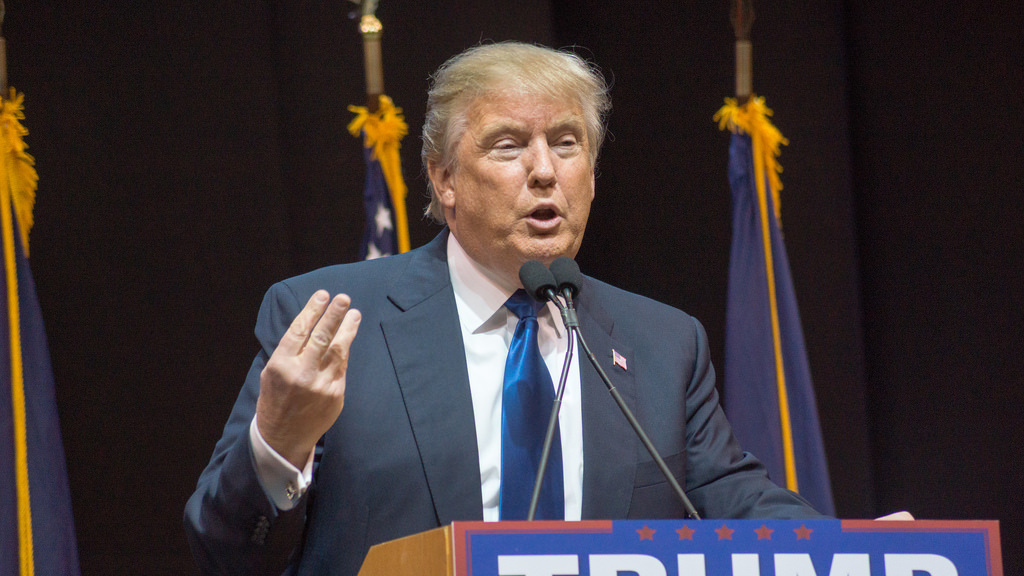| Quick, can you name the small university in Florida that hosted a presidential debate in 2012? How about the locations of the last three Republican primary debates? (Hint, they also were the states that hosted the last three primaries/caucuses.) It’s easy to lose your footing in the strong under toe of hyperbole that has swept Northern Utah since the announcement last weekend that a Republican presidential primary debate is coming to Salt Lake City on March 21. |
| | Yes, the debate will produce positive benefits. Although no one knows at this point how many candidates will remain in the race a month from now, there should be a substantial number of political operatives and media members coming to town. Wherever Donald goes, people follow. They bring money with them to spend at local restaurants and bars, and they stay at hotels. And yes, Salt Lake’s name will be out there on media reports, but let’s not get carried away. As I’ve noted before, that elusive cartographer who was supposed to put Utah on the map after two NBA finals, the Olympics and various other high profile events seems always to be out there on the horizon, just waiting for the state to score this or that big thing. Some have said this will establish Utah as more than a political flyover state or that, as state Republican Party Chairman James Evans told the Deseret News, it shows, “Utah has become a must-visit state.” That is overstating things by a hair, but only if we’re talking about hair the size of Donald Trump’s. Utah remains a sparsely populated Western state with six electoral votes almost certain to go to a Republican. That will be the same the day after the debate. Others talk of the boost this will give the economy, putting us on that proverbial map again. Well, keep things in perspective. That small school that hosted that debate in 2012 was Lynn University. It later commissioned a study that concluded the debate brought the equivalent of $63 million in publicity through 33,208 news stories. If you have forgotten the name of the school, don’t feel bad. We can’t all remember what we read in 33,208 stories. That’s how it goes with publicity in a media saturated world. It’s also important to note that few, if any, of those news stories were about Lynn or the surrounding area and its great attractions. They were datelines or casual “where” references in the “who, what, where, why and how” stories about the debate. And, to be clear, that was an October debate between the two final candidates, which is considerably more high profile than a primary debate among Republicans alone. The last Republican debate (in South Carolina, by the way) averaged 13.51 million viewers, according to Variety, making it the most watched one since Dec. 15. The sheer number of debates reduces their impact, but if Trump, Ted Cruz and Marco Rubio remain close on March 21, the Utah debate may draw an even larger audience. How many of those viewers will decide to visit Utah because of it? It’s obvious publicity mounts over time to give people a favorable impression, and the state certainly doesn’t hurt for tourists. But that won’t be why people are watching. When it comes to claims about how an event will boost the economy, it’s best to wear the hard hat of skepticism. Victor Matheson, an associate professor at the College of Holy Cross, told outsidethebeltway.com a while back that public officials are great “at adding and multiplying” all the money an event brings in. “They’re not good at subtracting.” Even a debate will require stepped up security and lead to congestion that drives some locals away from their favorite haunts. One study found that even the 2002 Olympics had little impact on the local economy, all things factored in, contrary to what some would have you believe. What the debate could do is enliven political interest in a state where voter apathy seems to be growing faster than dandelions in spring. Candidates may take time to campaign or hold events here. That could lead to good turnout at caucuses March 22. If that happens, and even if that’s the only thing that happens, scoring a debate — even in a season of endless debates — will be a good thing, indeed. |


 RSS Feed
RSS Feed

